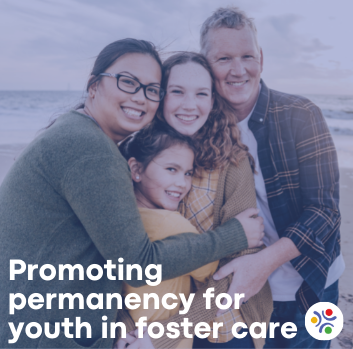By Ariana Estes
When a family makes the decision to grow their family through adoption, some may turn to foster care. After all, there are nearly 5,000 youth currently in foster care in Virginia. However, families may be surprised to learn that enCircle does not approve those who are seeking to become foster parents with the goal of infant adoptions, private adoptions, or out-of-state adoptions.
"A family who is seeking to build their family through adoption should not be considering foster care as a path. Foster parents are needed because the youth need a safe and stable home, one that will provide guidance and nurturance to help a youth achieve their goals and to learn skills so that they may feel confident and prepared for adulthood," says Amy Barbour, Director of Foster Care.
Rather than just adoption, enCircle focuses on the concept of permanency as the ultimate goal for youth in foster care. This can look like reunification with their biological family or relatives or, in some cases for older youth, this may mean providing support to help them live independently.
"Permanency does not necessarily mean adoption. Permanency can mean having a supportive and nurturing relationship with a family as that youth transitions into adulthood," says Neah King, Youth and Family Treatment Specialist.
"Permanency means that a child has someone to call, even after they turn 18, to talk about their day, to ask questions like, 'How do I know when my chicken is cooked?' or 'I need to sign up for classes at the community college, can you help me make choices?' Permanency can mean making a strong connection that is lifelong," adds Laura Williams, Program Manager-Treatment Foster Care.
This doesn’t mean that adoption through foster care is not a possibility.
While the first goal for youth entering foster care is to return home to their biological parents, it’s not always an option due to circumstances out of the youth’s control. There are many reasons why a youth may enter foster care — abuse, neglect, supervision, unemployment, housing, substance abuse — to name a few. These issues may not be resolved for some families and the court will then terminate parental rights. If termination of parental rights happens, then the youth in foster care is eligible for adoption. If a youth is unable to return home or be placed with relatives, then foster parents may be asked if they would be willing to adopt the youth in their home, and, often, many foster parents say yes to adoption.
When the youth is aged 14 or older, they have an option to say if they want to be adopted. With these older youth, they may want to be adopted by their foster parents or they may choose not to be adopted. If the court did not terminate parental rights, the youth will remain in foster care until they age out at 18 years old.
"It’s important for foster parents to be committed to providing a lifelong connection to the youth in their home. This means maintaining a relationship with them and being their support person as they enter college, get their first apartment, or be there when they need a shoulder to cry on or have exciting news to share," says Barbour.
As a foster parent, it’s important to meet the youth where they are — not try and mold them to "fit" into a family. Though sometimes challenging for everyone, it’s often the greatest gift.
Click here to learn more about becoming a Treatment Foster Parent with enCircle.


